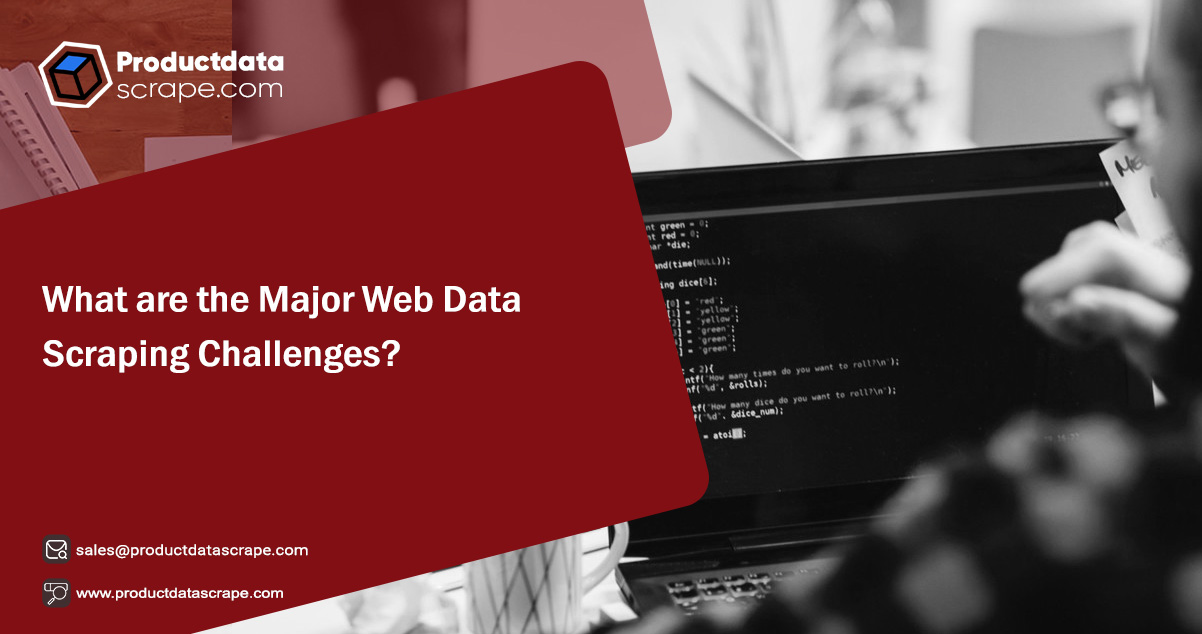
Online web data gives a lot of valuable information to companies that look for
insights into customer preferences, market trends, and competitor moves.
Seeking data from websites quickly in a structured and digestible format is vital
for industries to adapt to thrive in the competitive and large market. This is the
most sought-after way to expand the business after understanding market trends.
But several companies need to understand the advantages of growing online data
due to a lack of awareness.
After adhering to data scraping rules, we can legally retrieve data from multiple
websites that allow scraping data. Some websites don't allow machine learning
bots to access their data with robust blocking algorithms. Hence these websites
use dynamic programming to reject bots from entering their platform. Let's learn
about web data scraping challenges here with rules.
Allowing Bot Access
In any project, the primary step is to check if the target website allows bots to
crawl the website. Every website has the option to finalize whether they wish to
allow access or not. Most websites choose automatic web crawling. But, if you
still want to load the website, it's not a legal practice. It is better to discover
competitor websites that give similar data.
Captcha Handling
Captcha has a vital role in keeping spam away from websites. Enabling this
option
creates significant challenges for good web bots accessing the target website.
Captcha behaves as a barrier to the crawlers. But by using AI and ML, we can
negate this hurdle. Overcoming this barrier will permit you to collect data feeds
continuously. This raises more challenges by slowing down the data scraping
process and delivering unformatted data making it difficult to understand.
Structural Website Changes
Many websites frequently undergo modifications to improve the user experience
or to embed new features. We call it structural website changes. Since website
crawlers crawl the existing code element from the webpage, any change will
disturb crawling. This is why companies often hire service providers to scrape
web data for them. A dedicated web data scraping service provider performs the
maintenance and tracking of website crawlers and submits the structured
information to study insights.
IP Address Blocking
Many good web crawling bots experience a rare problem of IP blocking. It occurs
if a source website detects any suspicious activity by a web crawler, such as
multiple crawling requests from the same IP or parallel crawling requests using
automation. A few IP blocking algorithms are very aggressive and can restrict
scrapers even though they follow guidelines for data scraping. By embedding
some tools to find and block automated crawlers, we can load online data for
multiple purposes. However, note that some bot-blocking services may harm
website performance and SEO.
Dynamic Websites
Businesses are constantly focusing on making their websites user-friendly and
interactive, which means these sites have dynamic programming to offer a
custom UX. But it oppositely impacts web crawling. The sites have infinite
scrolling, lazy loading photos, and product variants functioning with Ajax calls, and
they create problems crawling efficiently. Sometimes, Google bots can't crawl
these websites easily.
User-generated Content
Loading user-generated content on websites like business directories, classified,
and small niche spaces often creates a debate. Considering user-generated
content is the unique selling proposition of these platforms, these websites
disallow crawling, which reduces scraping options.
Get Effortless Data
Hiring a web data scraping service provider is your most affordable choice. As we
know the dynamic nature of the web, there are more difficulties in collecting high
volumes of data from several business websites for multiple requirements.
Companies like Product Data Scrape can help you with your data scraping
requirements by evading all the challenges.
Need of Login
Some private information may need you to log in on the source website
first.
Once you submit your login details, your web browser appends the cookie value
where you request many sites multiple times, so the website understands you
had logged in before. Hence, while scraping target websites needing a login, send
cookies with the request.
Honeypot Traps
Website owners use this feature to arrest website scrapers. The trap has
hidden
links that only scrapers can find. Once the Scraper sacrifices itself in the trap, the
source website gets the IP address of the scraper and blocks it.
Unstable Loading Speed
Some websites don't respond to requests quickly or fail to load after
getting
multiple access requests. It's not a challenge if someone manually browses the
website since they reload the page and allow some time for it to reload. But a
scraper finds it challenging to deal with this kind of incident.
Conclusion
These are a few web data scraping challenges. You can negate them with
respective solutions with the help of experts. Product Data Scrape can help you with web
data scraping by negating all the challenges quickly, along with e-commerce data scraping,
retail analytics, price skimming, pricing intelligence, competitor monitoring, and product
matching services. Contact us to know more.

































.webp)




.webp)
.webp)
.webp)